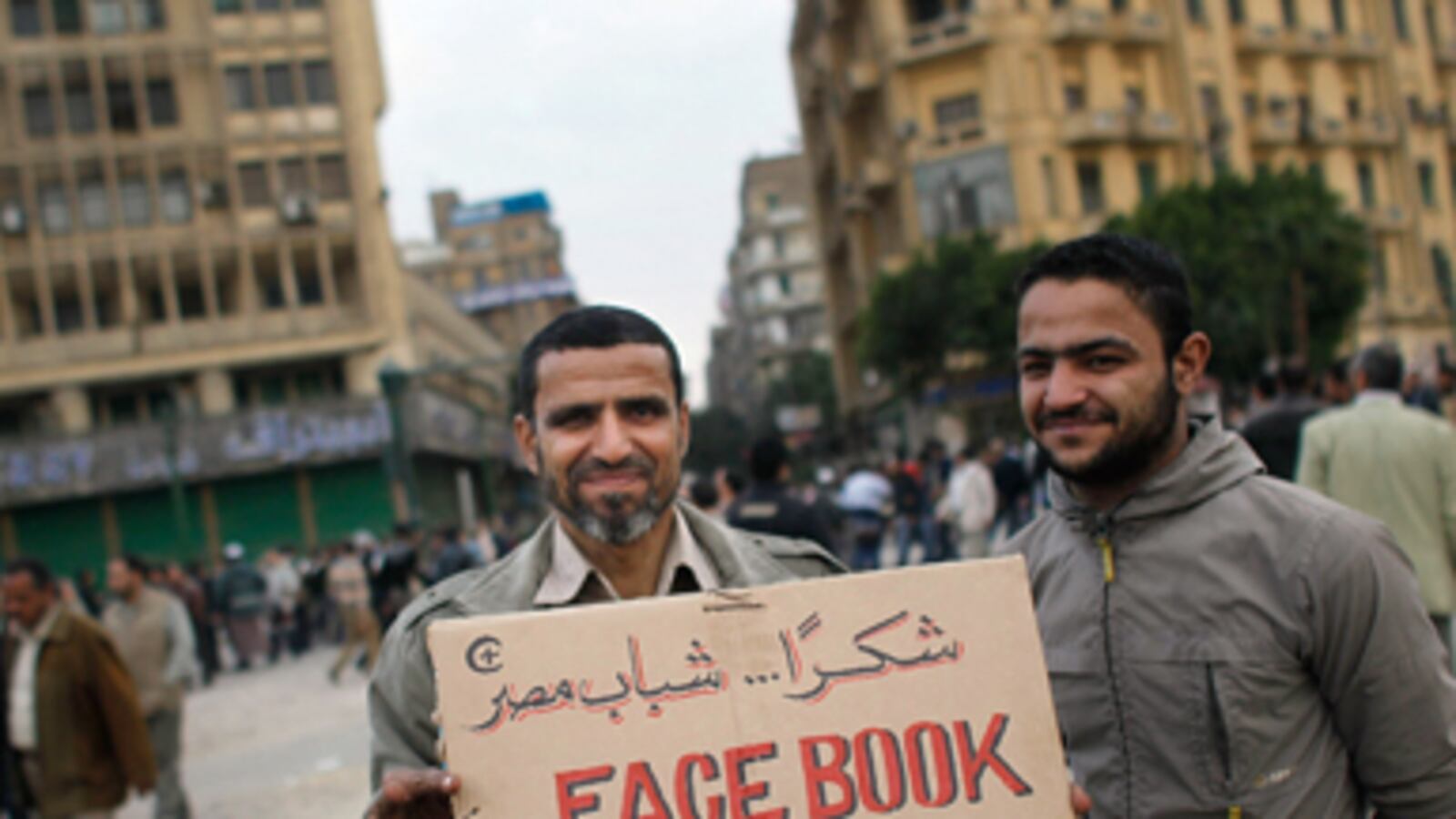Like many people, I have been watching the events unfolding in the Middle East with a jaw hovering somewhere near the floor. And curiously enough, many of the thoughts the revolutionary wave has inspired in me involve 1960s counterculture and the birth of '80s high tech in the United States.
Let me explain. A couple of decades back, I received a bit of notoriety for one widely quoted comment, "Money is the long hair of the '80s." I had intended to show that at least some of the seeds of entrepreneurship in the '80s—the flowering of personal computers, gaming, digital media, and so much more—had been sown in the counterculture of the '60s. I was convinced that much of the '60s experience of living according to social values, creating nontraditional organizations, the power of networks, grassroots organizing, and the general antiestablishment flavor of what I called the "corporate new wave" had been translated into the startups of the '80s. When the young reject the establishment, develop confidence in different ways of doing things, and, most important, find cultural and communications bridges to link them together, the stage is set for large scale social change.

What we have seen in the recent Middle East "awakening" is the power of shared experience, primarily among the young, and the use of new social media tools to organize, coordinate, generate content, and affirm a shared culture of protest. The jungle drums of the '60s that brought people together came from rock ‘n' roll. The cultural catalysts of 2011 in the Middle East are popular songs of protest posted on YouTube.
Time will tell, but I believe these events have set the stage for an explosion of entrepreneurial energy in the Middle East, especially in the Internet and related tech sectors. I see the emergence of a new socially minded entrepreneur in this part of the world—one willing to challenge the status quo, speak out, eschew the trappings of establishment career paths for something new, and take risks. Little of this has been possible, except with difficulty, in most of the Middle East until now. When repressive forces—direct or subtle—guide the young in the direction of conformity, compliance and conservatism, entrepreneurship may be thwarted. But it doesn't die; it only sleeps.
Now we see a massive outpouring of self-organized social entrepreneurship and activism, using technology as the medium of exchange. What will follow almost inevitably, I believe, is a similar tidal wave of business entrepreneurship and innovation as those radicalized by recent events and exposed to the power of new technologies quickly find ways to adopt them in every niche of a newly fluid society. The freedom that is on everyone's mind in that part of the world is the freedom to be one's own person—and also the freedom to be entrepreneurial in challenging conventional wisdom and established ways of doing things.
More than 300 million people live in the region and speak Arabic as their primary language; this is one of the last underserved, language-defined markets.
What also will fuel this boom is the size of the opportunity space. There is so much to be done in the Middle East, particularly in the social and Internet media fields. Right now, there are no dominant brands. The region is still culturally isolated, with a miniscule number of international books translated into Arabic each year. However, more than 300 million people live in the region and speak Arabic as their primary language; this is one of the last underserved, language-defined markets. And to date, the kind of exchange across national borders in the region that could generate larger market dynamics has been limited by the frictional forces of politics and aging infrastructure.
All of this is now poised to change, and dramatically. In the U.S., it took more than a decade for the lessons to percolate from the teach-ins to the startups. In the Middle East, the time frame will likely be measured in months, not years, owing to the ability of today's technology to decrease the cost structure of innovation and speed up its cycle time.
And the region already has the beginnings of an entrepreneurial culture. Late last year, I spoke at the Celebration of Entrepreneurship Conference in Dubai. Hundreds of young entrepreneurs from the Middle East gathered together to share experiences, attend workshops, and network. The links, forged from mind-set and purpose, between this community and the one taking the streets from Cairo to Tunis could not, in my view, be clearer.
Dubbed "Mr. Creativity" by The Economist, John Kao is a contributing editor at The Daily Beast and an adviser to both public—and private—sector leaders. He is chairman of the Institute for Large Scale Innovation, whose i20 group is an association of national innovation "czars." He wrote Jamming: The Art and Discipline of Business Creativity, a BusinessWeek bestseller, and Innovation Nation. Join John on his personal blog, Riffs from the front line of innovation, Facebook and on twitter @johnkao.






